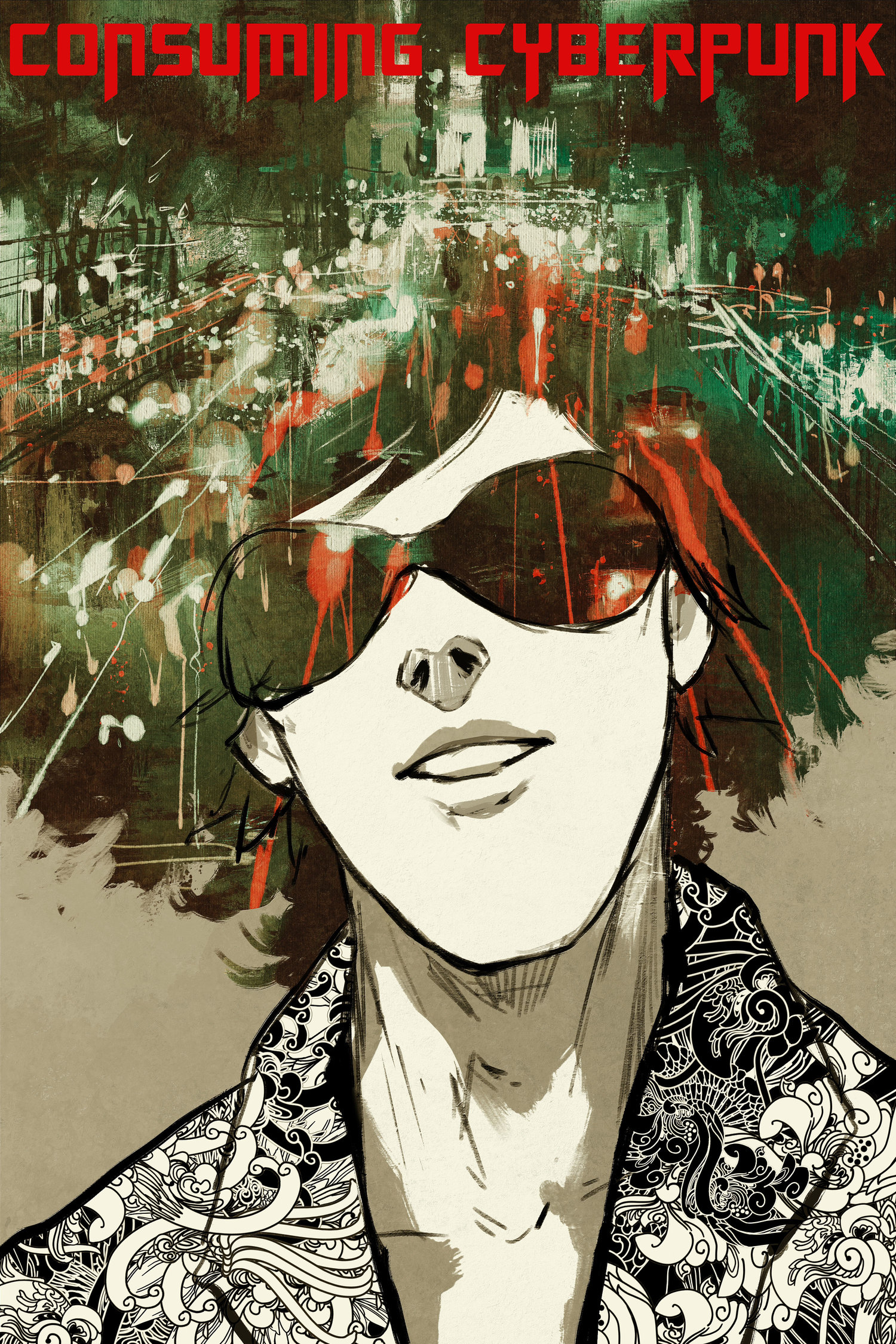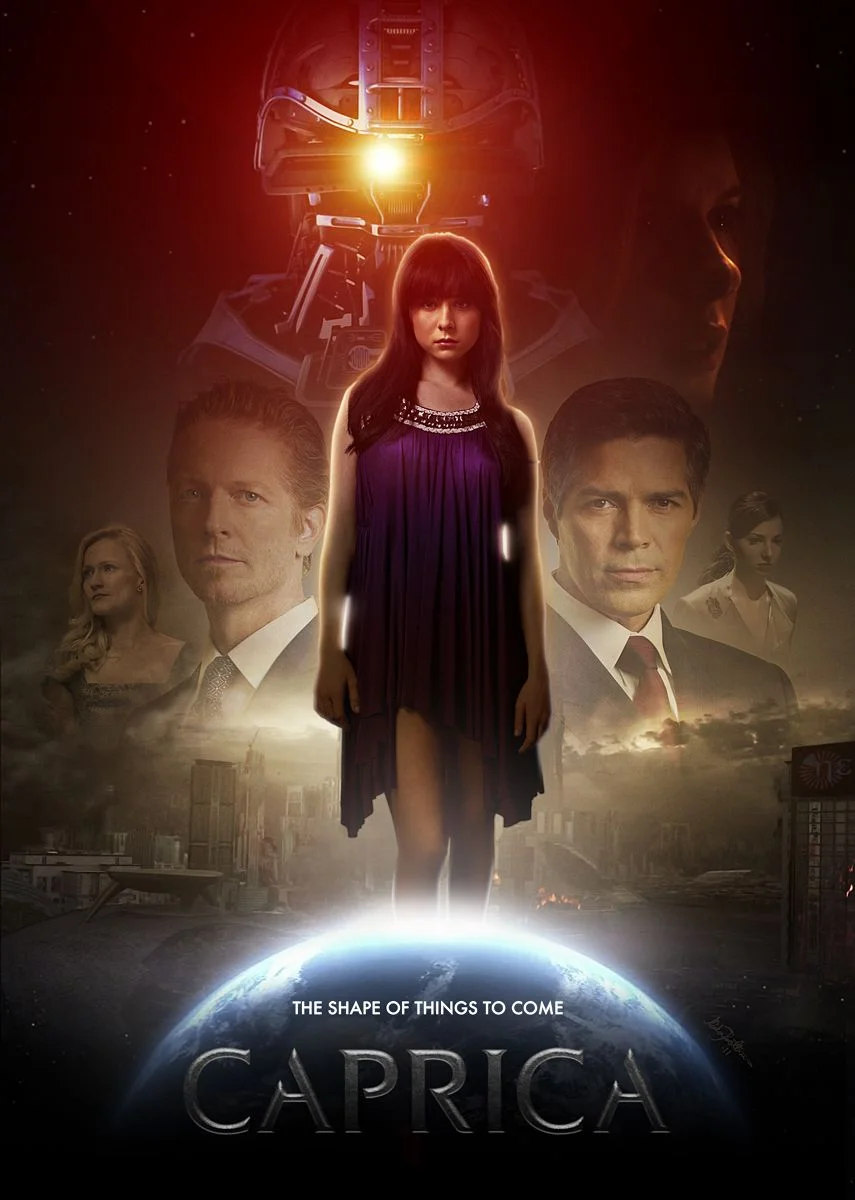History Repeats Itself In Caprica
So often the simulacra trope is used in cyberpunk to provoke or underline philosophical underpinnings. It is always a pale imitation that makes us think about what is real. If we are real.
Caprica, to me, suggests that the simulacra of the main character is both as real as the original and, at the same time, the construction of this insinuated perfection, kept off-screen, does not matter. We only know that she was made in the same image as the original and that is enough. Her humanity is, of course, questioned throughout the show by others, but the audience doesn’t get the alibi of seeing her creation. When the main character dies in the early moments of the show what is predominately “real” is only the digital self that remains.
The father is the head of a megacorporation and designing a prototype. So far, this prototype is drastically underperforming. But the death of his daughter and the questions surrounding her death linger, tipping him over the edge and unraveling his composed, privileged life.
He ends up attempting to understand the simulacra of his daughter trapped on the holobands, cyberspace; which was, ironically, created by him.
Anyone who has watched Battlestar Galactica knows what the eventuality of this story is, though: the cylons as we know them are created. Somewhere down the line a new kind of people are made from these moments here.
The series is very short but has a couple interesting ideas. The main character being a digital person of some kind, shrouded in mystery, clearly the impetus of the story we know. Also of note to me was the world, too.
It is regressive, indicative of a society that actually followed through with the notion that turning back time would fix most everything. A conservative idea that refuses to acknowledge that the same events would simply play out; the same problems present at a foundational, societal level would force the same cancerous results. But, of course, they are happy to pretend. The ‘50’s aesthetic is a neat literalization of this. Something pretty you know will end terribly.
Lastly, the hubris that created Cylons and denied them their rights; later the attempt at dehumanization in order to commit genocide—all stem from a father attempting an act of love that is curdled dead by his drive to succeed in overt capitalism. He only knows how to be toxic, destroying things he can’t rule, and his daughter refuses to be ruled. The product he would produce in such a society being a Cylon, it is marked as the largest advance in human history, no doubt. Human advances and horrific events are often striped of intention. This isn’t allowed to be.

